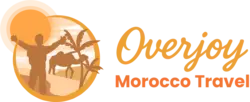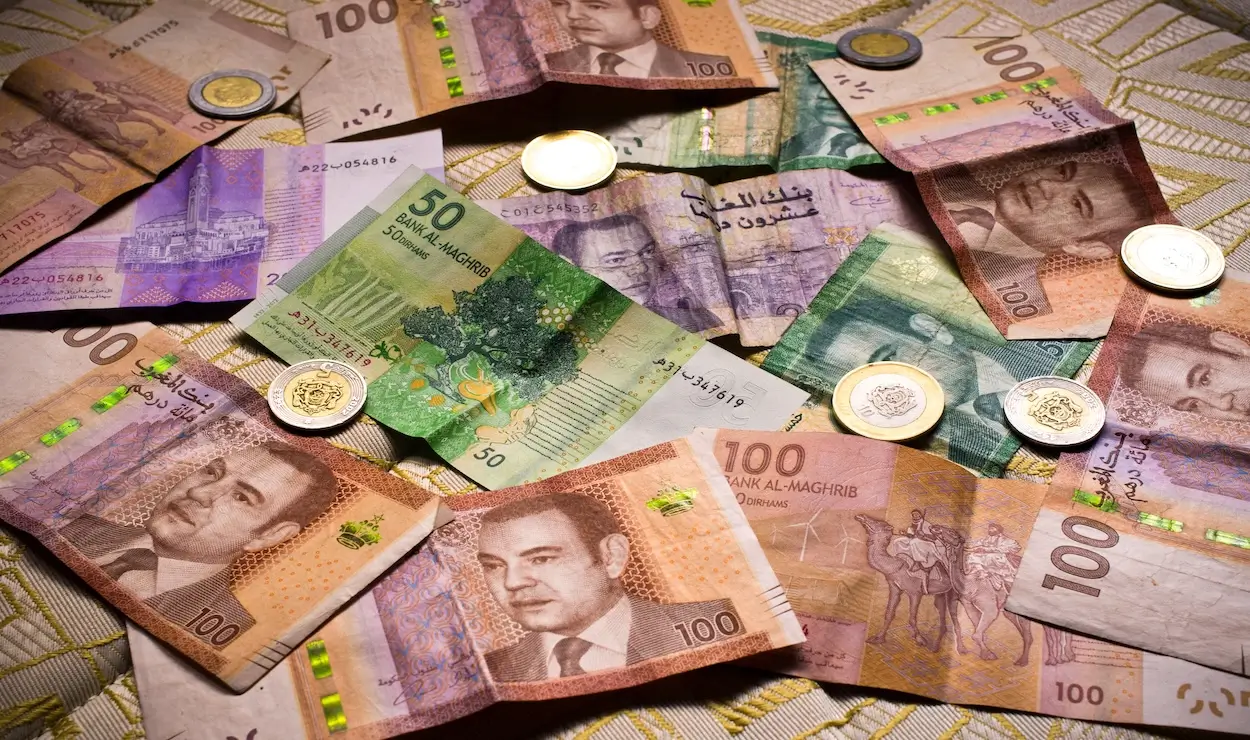Morocco Currency and Money Guide: Everything You Need to Know
Understanding Morocco's currency system and money culture is essential for a smooth and hassle-free travel experience. From the Moroccan Dirham to tipping customs, this comprehensive guide will help you confidently navigate financial matters and avoid common travel money pitfalls.
The Moroccan Dirham (MAD)
Currency Basics
- Official currency: Moroccan Dirham (MAD or DH)
- Symbol: DH or درهم (Arabic)
- Subdivisions: 1 Dirham = 100 centimes
- ISO code: MAD
- Current denominations:
- Coins: 1, 2, 5, 10 dirhams and 10, 20, 50 centimes
- Banknotes: 20, 50, 100, 200 dirhams
Exchange Rates and Value
- Approximate rates (subject to daily fluctuations):
- 1 USD ≈ 10 MAD
- 1 EUR ≈ 11 MAD
- 1 GBP ≈ 12.5 MAD
- 1 CAD ≈ 7.5 MAD
- Tip: Check current rates on apps like XE.com for the latest updates.
Getting Money in Morocco
Currency Exchange Options
- Banks:
- Best rates and reliable service.
- Passport required for exchange.
- Open weekdays with limited weekend hours.
- Official Exchange Offices (Bureaux de Change):
- Found in airports, major cities, and tourist spots.
- Competitive rates, better than hotels but slightly worse than banks.
- Keep receipts for reconversion when leaving.
- Hotels:
- Convenient but usually poor exchange rates and high fees.
- Good for emergencies or small exchanges only.
ATMs and Banking
- Availability: Widely available in cities and tourist areas, limited in rural zones.
- Accepted cards: Visa, Mastercard, Maestro.
- Tips:
- Notify your bank before traveling to avoid card blocks.
- Daily withdrawal limits of 2,000-5,000 MAD apply.
- Expect 3-5% international transaction fees.
- Carry backup cards from different banks.
- Major local banks: BMCE Bank, Attijariwafa Bank, Banque Populaire, Crédit du Maroc.
Credit and Debit Cards
- Commonly accepted in hotels, upscale restaurants, and tourist shops.
- Many small/local businesses, markets, and taxis accept cash only.
- Recommended cards: Visa and Mastercard; American Express less accepted.
- Contactless payments are growing but not universal.
Cash Culture in Morocco
Why Cash is King
- Many businesses operate primarily on cash.
- Tipping culture favors cash payments.
- Markets and souks require cash, especially for bargaining.
- Transportation like taxis and local buses only accept cash.
Cash Safety Tips
- Spread your money across different locations.
- Use a money belt for safety.
- Carry small bills for tips and exact change.
- Keep daily spending money separate from larger sums.
Budgeting for Morocco
Daily Budget Expectations
| Traveler Type | Accommodation (MAD) | Food (MAD) | Transport (MAD) | Activities (MAD) | Total per day (MAD) | Approx. USD |
|---|---|---|---|---|---|---|
| Budget traveler | 150-300 | 80-150 | 50-100 | 100-200 | 380-750 | $38-75 |
| Mid-range traveler | 400-800 | 200-400 | 100-300 | 300-600 | 1,000-2,100 | $100-210 |
| Luxury traveler | 1,000+ | 500+ | 400+ | 800+ | 2,700+ | $270+ |
Cost Breakdown
- Accommodation: Hostel dorm (100-200 MAD), budget riad (250-400 MAD), mid-range riad (500-1,000 MAD), luxury hotel (1,500+ MAD)
- Food: Street food (10-30 MAD), local restaurants (40-80 MAD), tourist restaurants (100-200 MAD), fine dining (300+ MAD)
- Transport: Local bus (3-5 MAD), petit taxi (10-50 MAD), train (50-200 MAD), private tours (800-2,000 MAD/day)
Tipping Culture and Etiquette
When and How Much to Tip
- Restaurants:
- Local: 5-10 MAD for good service
- Tourist: 10-15% if no service charge
- Cafes: 2-5 MAD
- Hotels:
- Porters: 10-20 MAD per bag
- Housekeeping: 20-30 MAD/day
- Concierge: 50-100 MAD
- Riad staff: 20-50 MAD/day total
- Transportation:
- Taxi: Round up or add 5-10 MAD
- Tour guides: 100-200 MAD/day
- Private drivers: 50-100 MAD/day
- Other Services: Hammam attendants (20-50 MAD), mosque shoe guards (5-10 MAD), helpful locals (10-20 MAD)
Tipping Etiquette
- Always carry small denominations (5, 10, 20 MAD).
- Hand tips directly with a smile.
- Show respect by tipping appropriately.
- For group tours, consider collective tips for guides and drivers.
Shopping and Bargaining
Market Shopping with Cash
- Bring exact change, as vendors may not give change.
- Use small bills for bargaining.
- Hide large sums of money.
- Set a budget before entering markets.
Bargaining Tips
- Start low (30-40% of asking price).
- Show the cash you’re willing to pay.
- Be ready to walk away if price is too high.
- Stick to your final offer.
Fixed Price vs. Bargaining
- Fixed prices at malls, pharmacies, train stations, official transport, and museums.
- Bargaining expected in souks, handicraft shops, carpet vendors, street stalls.
Money Safety and Security
Protecting Your Money
- Distribute cash in multiple spots.
- Use money belts and hotel safes.
- Carry only daily spending money with you.
- Be cautious of scams like fake police or overcharging.
- Know approximate prices before shopping.
Emergency Money Access
- Contact your bank immediately if cards lost/stolen.
- Use Western Union or embassy help for emergency funds.
- Keep backup cards and emergency cash separate.
- Have bank contact info and travel insurance details handy.
Regional Money Considerations
Tourist Areas vs. Local Areas
- Tourist zones (Marrakech medina, Fes medina) have higher prices but better card acceptance and ATM availability.
- Local neighborhoods offer better prices but mostly cash-only, with possible language barriers.
Desert and Mountain Areas
- No ATMs; carry enough cash for your entire trip.
- Prices higher due to transport costs.
- Tips and payments mainly in cash.
Currency Exchange Tips
Best Exchange Practices
- Exchange at banks for best rates.
- Always keep receipts for reconversion.
- Avoid airport exchanges unless necessary.
- US Dollars and Euros easiest to exchange.
Reconverting Dirhams Before Departure
- Keep exchange receipts to reconvert dirhams.
- Use remaining cash for last-minute purchases.
- Keep small amounts as souvenirs.
Digital Payment and Modern Options
Mobile Payments
- Growing but limited acceptance, mainly in tourist and upscale locations.
- Ensure payment apps work internationally.
- Always have backup payment methods.
- Requires reliable internet.
Tax and Duty Considerations
Sales Tax (TVA)
- Standard rate 20%.
- Included in prices.
- Tourist refunds available for large purchases with receipts.
Customs and Duty
- Declare amounts over $10,000 USD equivalent.
- Limited dirham amounts can be taken out.
- No restrictions on credit cards.
- Customs declarations may be needed for valuable purchases.
Conclusion
Understanding Morocco’s money culture will ensure a smooth and enjoyable trip. While cash is king, having multiple payment methods provides flexibility and security. Budget wisely, tip appropriately, and always keep safety in mind when handling money. Locals are helpful and appreciate respect for their customs.
Ready to plan your Morocco trip budget and itinerary?
Contact OverJoy Morocco Travel for expert advice on costs, activities, and experiences tailored to your travel style.
Need help budgeting for your Morocco trip? Our local experts provide detailed cost breakdowns and money-saving tips customized to your itinerary. Contact us for personalized travel planning.




